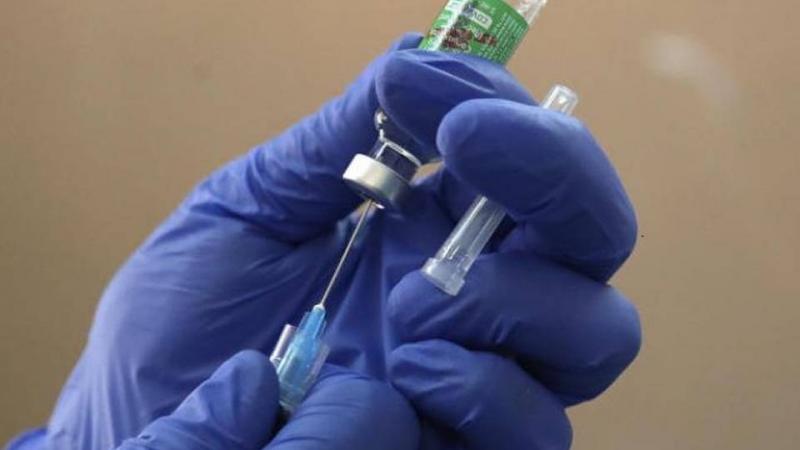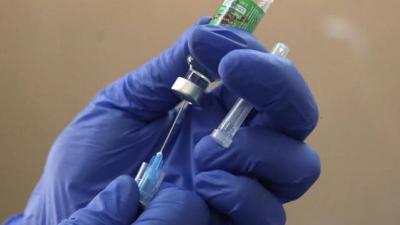A study on the effectiveness of the fourth dose of vaccines shows that 90% of recipients are protected from severe symptoms of the COVID-19 virus. The study indicates that the basic vaccine doses are no longer sufficient to prevent severe illness from the virus, highlighting the necessity for "boosters."
Lebanon has rapidly moved from reporting about a thousand infections to exceeding two thousand, with the latest count reaching 2,300. This surge places the country on a new peak of transmission, especially given that some laboratories have reported positivity rates as high as 45%, according to Dr. Fadi Abdul Sater, a biological sciences specialist and former head of the COVID-19 lab at the Lebanese University. Hospital occupancy rates reflect the virus's current situation, with regular bed bookings reaching 40% and critical care units at 43%.
This increase is not unexpected. The decline in preventive measures and the relative halt in vaccination efforts, particularly among the more mobile younger populations, justify this rise. Authorities expect the virus to regain momentum with the emergence of new variants, particularly the Omicron variant Ba5, which some studies indicate spreads quickly due to its ability to evade the immune system and antibiotics acquired from prior infections or vaccination.
There is no near end to the virus; as studies show, the more the virus spreads, the more new variants appear. According to the "National Committee for COVID-19 Vaccine Management," this reality necessitates reinforcing vaccination to achieve community immunity, easing the burden of living with the virus. The committee has called for more than just two basic doses, advocating for two additional booster doses, the third and fourth.
Dr. Abdul Rahman Al-Bizri, the committee's head, emphasizes that the call for booster doses is essential due to the "new partial Omicron variants' ability to cause more problems." Consequently, there have been ministerial decisions and vaccination marathons aimed at reviving the vaccination campaign. The latest figures show that 49.7% of the population received the first dose, 43.8% the second, and 26.2% the third, while the fourth dose is still at its early stages. Since mid-last month, the number of people vaccinated with the fourth dose has reached 8,756, with a cumulative total of 16,855 by the end of the month; 7,007 received it during the marathon (from July 4 to 7). Interestingly, the return to vaccination has seen a good turnout for the third and fourth doses, while earlier doses faced near boycotting (1,850 first doses and 1,875 during the marathon).
Though the numbers registered recently did not match the scale of the call to action, placing them "within a logical context that indicates a prior pause in vaccination efforts assures that the movement is gradually returning."
The Fourth Dose Effectiveness
Discussions surrounding the COVID-19 virus no longer stop at the primary two doses. The World Health Organization considers a person vaccinated against COVID-19 as one who has received three doses... "and an additional," as Al-Bizri points out. This "additional" takes the form of the fourth booster dose, which has begun to gain attention, especially with the virus's continued spread and recurrent infections among many previously infected individuals over short periods.
According to the national committee's recommendation, the third dose should be bolstered by the fourth "to prolong immunity." While this fourth dose is not mandatory for all individuals who have received the preceding three doses, the committee advises it be essential for the elderly and those with chronic conditions and weakened immune systems. This advice stems from global scientific studies demonstrating the critical importance of this dose as a booster against the virus, including a study that examined the effectiveness of the fourth dose of mRNA COVID vaccines (Pfizer and Moderna) against the Omicron variant among residents of long-term care facilities in Ontario, Canada.
New Variants?
The noteworthy aspects of this study are twofold: its relatively large sample size of approximately 61,000 individuals, which lends credibility to the results, and what was revealed in the published results in the British Medical Journal (BMJ). The results showed that "the more vaccine doses received, the greater the protection against the coronavirus," according to Al-Bizri. Although it is well established that the vaccine does not prevent infection, receiving the basic doses followed by booster doses reduces the risk of severe illness requiring hospitalization.
Based on the published study results, the protection rate against COVID-19 symptoms seven days after receiving the fourth dose ranged between 61% to 76%, while protection against severe symptoms was between 81% and 90%. According to Al-Bizri, "these results are particularly urgent for us, especially with the hospital situation in Lebanon that can no longer bear a new peak of the virus."
The study also indicated the need to shorten the interval between the third and fourth doses to around three months instead of six, given that a longer gap reduces protection rates. However, despite the reassurance these findings provide, there remains a fundamental concern raised by Abdul Sater regarding the emergence of new Omicron sub-variants capable of bypassing the immune system. The question arises: Will the vaccine doses, including the fourth, maintain the same levels of protection, or will their effectiveness decline? Answering this question "requires new studies," concludes Abdul Sater.




